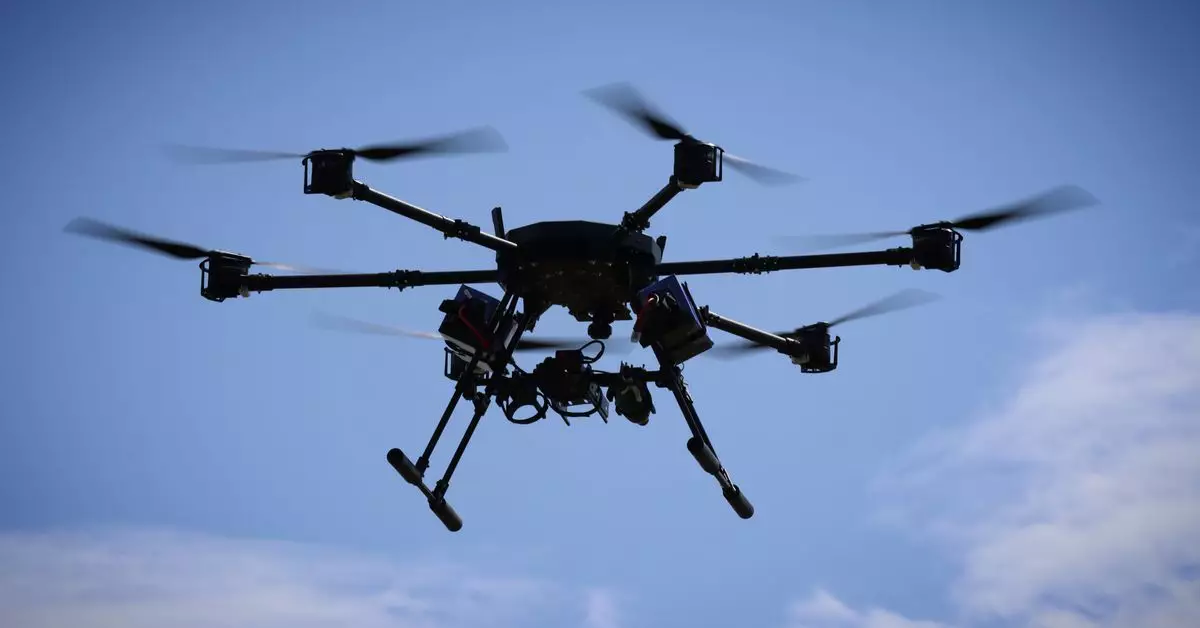The landscape of drone regulations is continuously evolving, with Illinois taking a significant step forward in ensuring the responsible use of drones in law enforcement. The introduction of the Drones as First Responders Act marks a pivotal moment for the state, as it modifies and enhances the existing Freedom from Drone Surveillance Act of 2014. This article analyzes the key provisions of the new act and explores its implications for law enforcement agencies and the public.
One of the foremost aspects addressed in the Drones as First Responders Act is the prohibition of attaching weapons to drones used by law enforcement agencies. To ensure public safety and prevent any misuse, lethal or non-lethal weapons such as firearms, weaponized lasers, and chemical agents are strictly prohibited. This approach establishes a clear boundary between law enforcement and potential harm, fostering accountability and safeguarding civil liberties.
Enhancing Public Event Surveillance
A notable change introduced by the new act permits law enforcement agencies to fly drones over public events for the first time in Illinois. This adjustment acknowledges the evolving role of drones in enhancing public safety and enables authorities to monitor public gatherings effectively. By doing so, law enforcement agencies can proactively address potential threats and ensure the smooth execution of large-scale events while prioritizing citizen safety.
Recognizing the concerns surrounding privacy and drone surveillance, the Drones as First Responders Act imposes limitations on the use of facial recognition technology by law enforcement agencies. Facial recognition may only be utilized in the context of counter-terrorism or imminent harm prevention to life or property. This decisive approach strikes a balance between public safety and protecting personal privacy, addressing the growing concerns related to the potential use of facial recognition technology.
The new act establishes strict guidelines for the handling and disposal of information collected by drones. Law enforcement agencies are required to destroy any collected information within 30 days, unless it is deemed relevant to an ongoing investigation. This responsible data management approach ensures that individuals’ privacy is respected and minimizes the risk of unauthorized use or storage of sensitive information. The act also prohibits the sale of any collected data, safeguarding against potential exploitation and misuse.
Illinois is not alone in its efforts to regulate drones effectively. Several other states have implemented similar prohibitions on weaponized drones, including Maine, Nevada, North Carolina, Oregon, Vermont, Virginia, and Wisconsin. Florida has joined this movement with its own legislation banning armed drones. Furthermore, debates surrounding the use of police robots and their lethal capabilities continue to be a topic of discussion in different parts of the country. The recent reversal of San Francisco’s policy on the use of robot deadly force underscores the ongoing moral and ethical dilemmas surrounding the use of such technologies.
A Wider Context: Facial Recognition Restrictions
Illinois joins a group of states, including Massachusetts, Oregon, and Maine, in imposing restrictions on the use of facial recognition technology by law enforcement. The concerns regarding privacy violations and potential racial bias associated with facial recognition have prompted policymakers to address its potential risks. By implementing limitations on facial recognition usage, these states acknowledge the need for careful consideration and regulation when leveraging advanced technologies in law enforcement practices.
The Drones as First Responders Act heralds a new era of drone regulations in Illinois, aiming to strike a balance between public safety and individual rights. Prohibitions on weaponized drones and strict guidelines for facial recognition usage ensure responsible and accountable deployment of drone technology by law enforcement agencies. By embracing these regulations, Illinois takes a significant step forward in shaping the future of drone usage, setting an example that other states can follow.


Leave a Reply